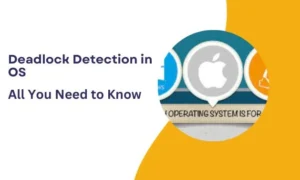Table of Contents
ToggleIntroduction
Blockchain Technology is a structure that maintains a shared store records of transactional records, named “Block” in several databases known as “Chain” in a network connected by peer-to-peer nodes.
One of the key features of Blockchain Technology is its decentralized nature. Blockchain is maintained and validated by a network of computers, known as nodes, they validate different transactions, verify the integrity of the blockchain and reach a consensus on the state of the ledger.
When it comes to effective and safe data exchange, enterprises today confront a growing number of obstacles. Blockchain Technology, is a ground-breaking idea that might revolutionize the way businesses exchange and handle data. Blockchain provides much more than that, albeit it is most frequently linked to cryptocurrency. It offers a decentralized, transparent, and unchangeable ledger that may be used in several businesses and sectors.
In this blog, we’ll look at how Blockchain Technology is transforming data exchange inside businesses and fostering more efficiency and transparency. We will examine the main advantages of blockchain, its practical applications, and potential repercussions for organizational data management. Join us on this tour to learn about the game-changing potential of blockchain technology and how it will revolutionize current data-sharing procedures.
What is Blockchain?

Blockchain is a distributed and decentralized digital ledger system that securely logs and confirms transactions among several computers, or nodes. A list of transactions is contained in each block of the chain-like structure that makes up the system. These transactions are recorded transparently and immutably, timestamped, and connected to the preceding block using cryptographic hashes.
The network is not governed by a single entity since the blockchain is decentralized. Instead, a consensus process is used to verify transactions. This technique often entails a network of nodes or participants that validate and concur that a transaction is genuine.
The immutability of blockchain is a significant aspect. Once a transaction is recorded and authenticated on the blockchain, altering or tampering with the data becomes incredibly difficult, offering a high level of security and trust.
Blockchain technology’s potential goes beyond just being associated with cryptocurrencies such as Bitcoin; it now has other uses in various sectors including banking, supply chain management, and healthcare amongst others. Its distinctive feature of enabling transparent yet secure data sharing while eliminating intermediaries resulting in cost savings makes it appealing to businesses alike. Blockchain allows businesses to re-engineer their procedures thereby improving their overall performance and ultimately providing trust assurance for all digital interactions.
How Does Blockchain Technology Help Organizations When Sharing Data?

When it comes to data exchange, blockchain technology provides various advantages to enterprises.
Enhanced Data Security
Blockchain uses advanced cryptography algorithms to safeguard data. Each transaction is digitally signed and connected to the preceding transaction, forming an unbreakable chain of records. Because of its immutability and openness, it is particularly resistant to fraud, manipulation, and illegal access, giving a better level of data security.
Transparency
Blockchain allows for a transparent and auditable record of transactions. All blockchain network members have access to the same information, removing the need for middlemen and lowering the possibility of inconsistencies or conflicts. Transparency builds confidence among parties and simplifies data-sharing processes.
Increased Efficiency
Traditional data exchange systems are sometimes time-consuming and complex, necessitating middlemen and substantial documentation. Blockchain technology simplifies this by enabling authorized individuals to access a shared, decentralized ledger. This removes the need for several database reconciliations and streamlines data verification and transmission, resulting in faster and more efficient information sharing.
Data Integrity and Traceability
Blockchain keeps a permanent, tamper-proof record of all transactions. This enables companies to trace the origin, transport, and change of shared data. It ensures the correctness and validity of information communicated among stakeholders by improving data integrity.
Cost Savings
By eliminating intermediaries and central authority, blockchain technology lowers the costs of data sharing and administration. It reduces the need for manual reconciliations, third-party verifications, and paperwork, saving enterprises substantial money.
Read more about:- OpenAI’s ChatGPT vs. Google’s Bard: Battle of AI-Language Models
Blockchain Applications in Organizational Data Sharing

-
Supply Chain Management and Traceability
Modern firms rely heavily on supply chain management and traceability. By offering an immutable and transparent record for tracing commodities and confirming their path from origin to destination, blockchain technology provides a disruptive solution. Organizations may use blockchain to increase supply chain visibility, assure product authenticity, expedite logistics, and build trust among stakeholders. Blockchain’s decentralized structure eliminates reliance on centralized authority while also lowering the danger of fraud or tampering, making it an excellent tool for supply chain management and traceability in a variety of industries such as manufacturing, retail, food, and medicines.
-
Digital Identity Verification And Access Control
Digital identity verification and access control are crucial in today’s digital world. Blockchain technology provides a decentralized and secure framework for maintaining digital identities and limiting access to resources. Individuals may have more control over their identities with blockchain, and their information is securely and tamper-proof kept. Smart contracts offer automatic and efficient access control, guaranteeing that only authorized organizations have access to certain resources.
This improves security, privacy, and trust in digital interactions. Blockchain-based digital identity verification and access control provide a disruptive solution that minimizes reliance on centralized authority and provides a transparent and decentralized approach to identity management.
-
Streamlined Processes and Efficiency
Blockchain technology provides significant benefits such as streamlined operations and increased efficiency. Organizations may use blockchain to simplify and optimize numerous activities, resulting in increased efficiency and production. Through smart contracts, blockchain removes the need for middlemen, minimizes laborious reconciliation processes, and automates trust-based transactions.
This simplifies procedures, decreases administrative expenses, and lessens the likelihood of mistakes or conflicts. Furthermore, blockchain’s openness and real-time visibility offer greater collaboration, faster decision-making, and improved supply chain management. Overall, the capacity of blockchain to simplify operations and generate efficiency improvements may result in cost savings, better customer experiences, and a competitive advantage for enterprises across sectors.
Read a blog about:- OpenAI Playground: Unleashing the Power of AI in a Playful Sandbox
Overcoming Challenges and Considerations in Blockchain Adoption

-
Scalability and Performance Considerations
Blockchain technology provides significant benefits such as streamlined operations and increased efficiency. Organizations may use blockchain to simplify and optimize numerous activities, resulting in increased efficiency and production. Through smart contracts, blockchain removes the need for middlemen, minimizes laborious reconciliation processes, and automates trust-based transactions.
This simplifies procedures, decreases administrative expenses, and lessens the likelihood of mistakes or conflicts. Furthermore, blockchain’s openness and real-time visibility offer greater collaboration, faster decision-making, and improved supply chain management. Overall, the capacity of blockchain to simplify operations and generate efficiency improvements may result in cost savings, better customer experiences, and a competitive advantage for enterprises across sectors.
-
Regulatory and Legal Implications
Blockchain technology has novel regulatory and legal ramifications for businesses. Because blockchain allows for decentralized and immutable transactions, it puts existing legal systems to the test. Data privacy, identification verification, intellectual property rights, and cross-border transactions are all issues. To meet these problems, regulators are establishing frameworks to assure compliance and consumer protection. Legal recognition and enforcement of smart contracts, for example, may be required.
Furthermore, while deploying blockchain technologies, privacy laws, anti-money laundering rules, and data protection restrictions must be addressed. Organizations must be updated about emerging rules and interact with authorities to guarantee compliance while using blockchain technology’s disruptive potential.
-
Interoperability and Integration with Existing Systems
When implementing blockchain technology, interoperability and integration with current systems are crucial factors to take into account. For blockchain to be successfully implemented, organizations frequently already have established systems, databases, and procedures in place. The capacity of various blockchain networks and protocols to efficiently connect and share information is referred to as interoperability.
To guarantee compatibility across multiple blockchain platforms, standardization initiatives are now in progress. By bridging the gap between legacy systems and blockchain, integration with existing systems enables data interchange and interoperability. Middleware, data mapping methods, and application programming interfaces (APIs) are essential for integrating blockchain with current infrastructure. Businesses may take advantage of blockchain technology’s advantages while protecting their present system investments with successful integration and interoperability.
Conclusion
Blockchain technology has been a game-changer in how corporations share data. How organizations handle and communicate information is revolutionized by its capacity to offer improved efficiency and openness. Blockchain is revolutionizing data-sharing techniques across sectors with better security, more transparency, simplified procedures, and lower prices.
Blockchain is helping businesses to reach unprecedented levels of responsibility and trust in areas like supply chain management and digital identity verification. Despite issues with scalability, regulatory consequences, and integration, blockchain technology has the potential to significantly improve data exchange. Organizations may achieve previously unheard-of levels of efficiency, openness, and creativity by adopting blockchain, laying the foundation for a safe and decentralized future.
Suggested Blogs:-
Frequently Asked Questions (FAQs)
Blockchain employs advanced cryptography and decentralized consensus mechanisms to secure data, making it tamper-proof and resistant to unauthorized access.
Yes, blockchain can be integrated with existing systems through APIs, middleware, and data mapping techniques, allowing seamless data exchange and interoperability.
Various industries, including finance, supply chain management, healthcare, and real estate, can leverage blockchain to enhance efficiency, transparency, and trust in data-sharing processes.
Blockchain scalability is an ongoing challenge, but solutions like sharding, sidechains, and layer-two protocols are being developed to address scalability concerns.
Yes, organizations need to navigate regulatory frameworks related to data privacy, intellectual property rights, cross-border transactions, and compliance with existing laws while adopting blockchain technology.



